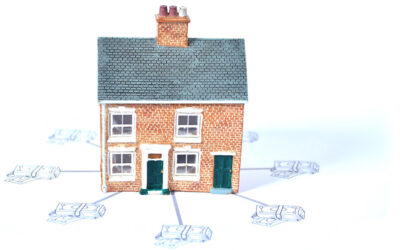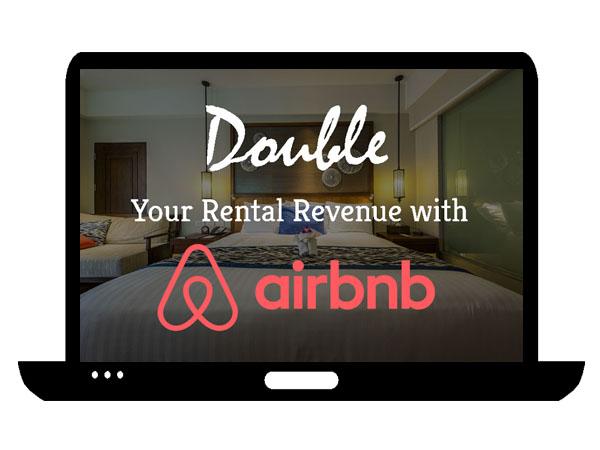
Just like homeowners, landlords need property insurance coverage.
Too little coverage leaves you exposed to losses when and if your property suffers damage. But too much landlord insurance coverage is an unnecessary expense each month.
Which means you need to strike the right balance of rental property insurance coverage to protect yourself and your property without breaking the bank.
What Is a Landlord Insurance Policy?
While there are a few different types of landlord insurance, usually real estate investors refer to property insurance coverage when they talk about landlord insurance. Other types of coverage include rent default insurance and title insurance — more on them later.
In exchange for your monthly premium, the insurance company will pay for damages, legal fees, and a number of other items when something happens that’s covered by your policy.
Landlord insurance works similarly to your regular homeowners insurance policy that covers a variety of damages. Rental property insurance doesn’t cover furniture or personal belongings however, unlike homeowners insurance. Your tenants can (and should!) buy their own renters insurance policy to cover their belongings.
So what specifically does it cover?
Related Article Read: Ways to find pre foreclosure homes.
Related Article Read: Guide to Driving For Dollars.
What Rental Property Insurance Covers
Landlord insurance covers the following aspects of your investment property:
-
- Buildings and dwellings: Rental property insurance covers the physical structure of the building, including any attached fixtures and permanent structures. Dwelling coverage can include additional structures such as sheds or detached garages.
- Personal property: Rental property insurance covers the personal property of the landlord, such as furniture, appliances, and any other items owned by the landlord that are used in the rental unit.
- Liability: This coverage provides protection from liability claims that may arise from an injury or damage to a tenant, guest, or another person on the rental property. Liability coverage can also extend to other events, such as libel, slander, and even copyright infringement.
- Instances of loss-of-use: Landlord insurance generally covers instances of loss-of-use, which means that if a property can no longer be rented out for a time, the landlord’s insurance policy will provide loss of rent coverage for the income that would have been generated from the rental of the property, as well as any other costs associated with repairing the damage.
While rental property coverage can go a long way in protecting the landlord, you’ll want to ask your renters to secure their own renter’s insurance policy. These policies protect the renters’ personal belongings, which aren’t covered by a landlord’s policy. They also provide some additional liability protection for you as the property owner.
Note that landlord insurance doesn’t cover damage from floods. It does often cover other types of water damage, such as damage from a leaking pipe.
How Much Landlord Insurance Do I Need?
You know that you need coverage for your property, but you don’t want a commission-hungry insurance agent trying to convince you that you need a ton of optional coverage. So, you need to go into the conversation with an estimate of how much you really need in coverage.
Make sure you’re considering the following when deciding exactly how much you need in protection:
-
- The value of your property: Since one of the main purposes of landlord insurance is to cover the actual building itself, you’ll want coverage that at least equates to the value of the property. This way you can rebuild or sell if a covered event destroys the building.
- The value of the belongings within your property: Consider what it would cost you to replace all of the appliances and major items like a water heater or furnace. If a tenant breaks an appliance or an unexpected event makes these items unusable, you’ll want coverage that can take off the burden of the heavy upfront cost of replacing these things.
- Where your property is: Is your property in an area where there are frequent thefts? Vandalism? Natural disasters? If so, consider this when talking with an insurance provider. They can help you ensure you have adequate coverage to protect yourself from events such as these.
- How many tenants you rent to: The more people in your building, the greater liability you take on. If one of your tenants or their guests gets injured, you could face a lawsuit. If you have one or just a few tenants, you can probably do with a less expensive liability policy, but landlords with large complexes that house many tenants will need to account for that when taking out an insurance policy.
- How much you want to pay for your policy: Even as a landlord profiting from your rental property, you’re likely only willing to pay so much for insurance coverage. If you’re looking for a lower annual premium, you’ll have to settle for subpar coverage, while those willing to pay higher rates will get more advanced coverage.
Landlord insurance often gets more complicated than homeowners or auto insurance, so it’s important to contact an agent about your exact needs since it varies so widely between properties and property owners.
How Much Does Landlord Insurance Cost?
The cost of landlord insurance varies depending on the size and location of the rental property, the type of coverage you’re looking for, and the insurer you choose. Generally, landlord insurance premiums cost about 25% more than a traditional homeowners policy, according to the Insurance Information Institute.
A basic (and therefore cheaper) landlord policy typically covers the building and its contents, as well as your liability insurance for injuries and possibly property damage caused by tenants.
For more comprehensive coverage, you’ll need to up your premiums substantially. However, a comprehensive policy would include coverage for lost rental income, damage caused by tenants, and vandalism and malicious damage.
When selecting an insurance policy, consider your specific needs and compare quotes from several different insurers. This will help you find the best coverage at the best price.
Renting Your Home on Airbnb
If you rent out a room in your home or an accessory dwelling unit on Airbnb, you may not need a separate policy at all. For that matter, you don’t need a separate policy if you rent out rooms to housemates as a form of house hacking either.
Your homeowners insurance policy may offer coverage for short-term guests. Check your individual policy inclusions. Even so, you may need to up your coverage amounts.
Some insurers aren’t as lenient and will require you to purchase a rider or a separate policy that extends your coverage. If you regularly rent out your primary home or an apartment or space in your primary home, it could be considered a business, and you may need to purchase a separate business insurance policy beyond your homeowners policy. This type of policy is designed to cover the specific risks associated with renting out a property on a short-term basis. It typically covers property damage, legal liability, lost income, and other risks associated with short-term rentals.
Additional Coverage Options Landlords Should Consider
A landlord insurance policy provides basic coverage landlords need to protect their property and belongings like appliances, for example. But there’s more you need to consider when you own a property or multiple properties.
Rent Default Insurance
Rent default insurance pays you rent if your tenant stops paying. You keep collecting rent while you evict your non-paying tenant and advertise the unit for rent. It can also provide coverage for legal expenses associated with tenant eviction proceedings.
Often the tenant pays for it, not the landlord!
Check out The Guarantors and Steady as two reputable insurers offering rent default insurance.
Flood Insurance
If your property is in a flood zone, you should buy separate flood insurance, as rental property insurance policies don’t cover flood damage.
In fact, your lender will require flood insurance if the property is in a flood plain.
(article continues below)
Title Insurance
When you buy a property — whether a home or an investment property — there’s a small but real risk that someone will later come forward and contest your ownership. They may claim that the person who sold you the property did not have the legal right to do so, for example.
Title insurance protects you against this. If someone successfully retakes ownership of the property from you over a title claim, title insurance pays you for the property.
Unlike rental property insurance or rent default insurance, you only pay for title insurance once, when you close on the property.
Tenant Discrimination
As a landlord, it’s important to remember that it’s illegal to discriminate against tenants on the basis of their race, religion, gender, or national origin. That said, in order to protect yourself against potential discrimination lawsuits, consider adding tenant discrimination coverage to your rental property insurance policy. This provides financial protection in the event of a discrimination claim.
FAQs About Investment Property Insurance
Insurance gets complicated, so you probably have more questions. Here are a few common ones about rental property insurance.
Does Landlord Insurance Cover Tenant Damage?
Yes — under some circumstances.
Most landlord policies cover accidental damage caused by tenants. For example, if your tenant accidentally starts a kitchen fire by cooking with too much grease, many policies cover the fire damage.
However most policies don’t cover wear and tear on the property or appliances, caused by tenant use. Landlord policies also don’t cover vandalism or intentional damage caused by tenants.
Am I legally required to have landlord insurance?
At the end of the day, if you own the property outright, there’s no law that says you need insurance. If you want to pay nothing for insurance every month, know that you’ll pay dearly if you have to come up with the cash to fix a major problem.
That said, lenders require property insurance. If you take out a rental property mortgage, you need to buy landlord insurance.
Are there cheap rental property insurance options?
Yes, there are affordable rental property insurance options available. Many insurance companies offer competitive rates and discounts for certain rental property owners. Shopping around and comparing policies is the best way to find the coverage you need at the most affordable rate. Additionally, many insurance companies offer discounts for bundling multiple policies, such as home and rental property insurance, for further savings.
How can I reduce my insurance costs?
If you’re sick of paying way too much for your insurance policy, the action steps you can take to solve the problem, include:
-
- Shop around: Comparing quotes between different insurers can help you find the best deal.
- Increase your security: Many insurers offer discounts for having additional security measures in place, such as an alarm system or cameras.
- Increase your deductible: Increasing your deductible can reduce your premiums, but make sure you can still afford the deductible if you need to make a claim.
- Bundle your insurance: See if you can bundle your landlord insurance with other policies, such as home insurance or auto insurance. This can often result in discounted premiums.
- Ask for discounts: Ask your insurance company if they offer any discounts or special offers. Many insurers offer discounts for longtime customers or for making payments on time.
- Review your coverage: In order to make sure you’re only paying for the coverage you need, review your policy every few months. If you don’t need certain types of coverage, remove them from your policy.
Final Thoughts
Rental property insurance is an essential product you need to purchase as a landlord. It’s one of several ways you can and should protect your investment. Since purchasing a rental property is no small feat, the protection you get far outweighs the price you’ll pay for coverage.
The amount of coverage you need should be tailored to the specific needs of your rental property. While the basics offered by liability and property damage coverage help protect most of your property and tenants, you should also consider additional coverage options such as loss of rental income and tenant discrimination protection. Shop around and compare different coverage options to find the best deal available. With the right coverage in place, you can make sure your rental property is protected and your tenants are taken care of.
And always, always require tenants to buy renters insurance policies.♦
What riders and inclusions do you pay extra for in your landlord insurance policy?
Related Article Read: What Is the Due Diligence Period in Real Estate?
Related Article Read: How to transfer property from a person to an LLC.
Related Article Read: What You Need to Know About Condemned Houses in 2023?
More Real Estate Investing Reads:

G. Brian Davis is a real estate investor and cofounder of SparkRental who spends 10 months of the year in South America. His mission: to help 5,000 people reach financial independence with passive income from real estate. If you want to be one of them, join Brian and Deni for a free class on How to Earn 15-30% on Fractional Real Estate Syndications.




























I have a pretty basic policy on my investment properties. Might be time to take another look…
Yeah it’s definitely worth taking a few minutes to review!
Any landlord insurance companies you recommend? Premiums have gone higher :/
Yes, check out Sure for rental property insurance and Steady for rent default insurance.
That is indeed right! The best way to protect assets is to get a decent insurance policy.
Super helpful. I’m new to rental investing, thinking about buying my first rental property. Still trying to get a grasp on the various costs including types of landlord insurance.
Glad to hear it was helpful Albert, best of luck with buying your first investment property!
Homeowners should pick the best insurance policies. Weather is on a rampage and criminal activities are going high! That is base on data. It’s all over the news.
When it comes to landlord insurance, finding the right policy that provides comprehensive coverage at a reasonable cost is key to ensuring peace of mind and protection against potential losses.
Amen Margot!